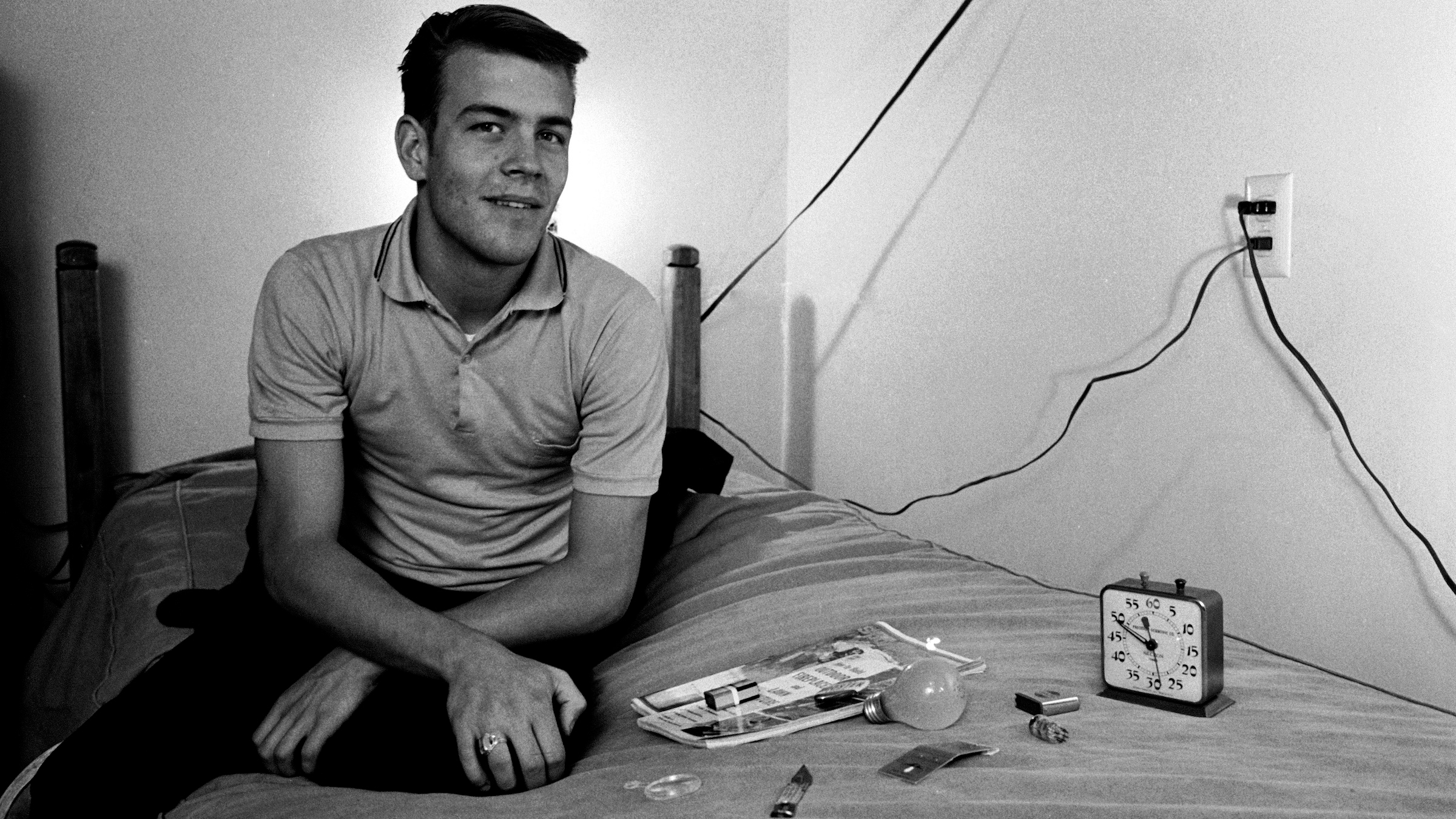For an astonishing 11 days and 25 minutes, 17-year-old Randy Gardner didn’t sleep for a high school science fair project in California in 1963, setting the world record for the longest someone has stayed awake (opens in new tab). Other people have reportedly broken this record — Robert McDonald went 18 days and nearly 22 hours without sleeping in 1986 — but none were monitored as closely or by a doctor as Gardner was.
Guinness World Records doesn’t cover this feat anymore; in 1997 they stopped accepting new submissions due to “inherent dangers associated with sleep deprivation.”
But what are these dangers? What happens to people who experience prolonged sleep deprivation?

Sleep is necessary for executive, emotional and bodily functions, and insufficient sleep may raise the risk of several health conditions, including diabetes, heart disease, obesity and depression, according to the Centers of Disease Control and Prevention (opens in new tab). Experts say humans require a consistent six to eight hours of sleep at the same interval every 24 hours. But it’s not uncommon for people, especially students, to pull an all-nighter and stay awake for 24 hours.
At this stage of sleep deprivation, it can be challenging to distinguish between sleep and wakefulness, said Dr. Oren Cohen (opens in new tab), a sleep medicine fellow at Mount Sinai Hospital in New York City. As someone starts to push 24 hours without sleep, their brain activity already shows signals that they are on the sleep-wake border, even though they appear to be awake, Cohen said.
Related: Does drinking chamomile tea really help people fall asleep?
This is called sleep intrusion or micro-sleep. People who forgo hours of sleep appear awake, but their brain involuntarily goes into a sort of abnormal sleep, which could include intervals of inattention or hallucination. “But sleep takes over, inevitably the brain goes into sleep. When a person tells me ‘I haven’t slept in weeks,’ that’s nearly impossible,” said Dr. Alon Avidan (opens in new tab) who leads the Sleep Disorders Center at the University of California, Los Angeles.
“I would be hard-pressed to believe that someone can stay awake for more than 24 hours without these episodes,” Cohen added.
But exactly how long people can go without sleep and the timeline of side effects that unfold can be hard to pinpoint. Chronic sleep deprivation, when an individual doesn’t sleep for an extended period, is so devastating that it’s unethical to research it in humans, Avidon said. It’s even been used as a form of psychological torture (opens in new tab).
Though prolonged sleep deprivation can’t be studied, we do have data on people with the rare inherited disease called fatal familial insomnia (FFI). These patients have a genetic mutation that causes an abnormal protein to accumulate in the brain (opens in new tab) and progressively worsens sleep. Their bodies begin to deteriorate and they eventually die because the abnormal protein builds up and damages their brain cells. The disorder kills most patients within an average of 18 months (opens in new tab).
In animals, a study from 1989 in rats (opens in new tab) showed the animals could only go without sleep for between 11 and 32 days before it killed them.
A 2019 human study published in Nature and Science of Sleep (opens in new tab) found participant alertness and vigilance were relatively normal up to 16 hours into sleep deprivation. But after 16 hours, their lapses in attention rose significantly and were even worse for the participants with chronic insomnia. A study from 2000 (opens in new tab) found that staying awake for 24 hours reduced hand-eye coordination on par with a blood alcohol content of 0.1%. The effects of sleep deprivation at 24 hours included reduced reaction time, slurred speech, impaired decision-making, diminished memory and attention, irritability, impaired vision, hearing and hand-eye coordination, and tremors, according to the Cleveland Clinic (opens in new tab).
At 36 hours, sleepless people may have increased inflammatory markers in their blood and even develop hormone imbalances and slowed metabolism, Cleveland Clinic reported. There’s little research on what happens at 72 hours, but people can become anxious, depressed, hallucinate and have trouble with executive function.
Research in U.S. physicians (opens in new tab) showed that impaired sleep increased burnout and self-reported medical error. Surgical residents in Israel showed “greater impulsivity, slower cognitive processing, and impaired executive function” than before their 26-hour shift, according to a 2021 study in the journal Medical Education (opens in new tab). Shift workers are also at high risk for the consequences of impaired sleep because they tend to get insufficient sleep, aren’t always able to sleep at the same time, and must often sleep while it’s light out, which clashes with humans’ natural sleep-wake cycle.
And it’s critical to know that you can’t just make up for sleep deprivation tomorrow or over the weekend. Sleep deprivation is cumulative, so those who go without sleep incur a sort of sleep debt. And for every hour of sleep lost, it requires a full eight hours of sleep to recover, Avidon said.
Sleep restriction is risky for another reason, too: even though the impact on attention can be severe, you might not notice it yourself. Just like someone who is under the influence of alcohol thinks that they are fine to drive, someone getting limited sleep might feel fine or even get a second wind. They don’t know they are having these lapses in attention, Cohen said.
Stay connected with us on social media platform for instant update click here to join our Twitter, & Facebook
We are now on Telegram. Click here to join our channel (@TechiUpdate) and stay updated with the latest Technology headlines.
For all the latest For Top Stories News Click Here
